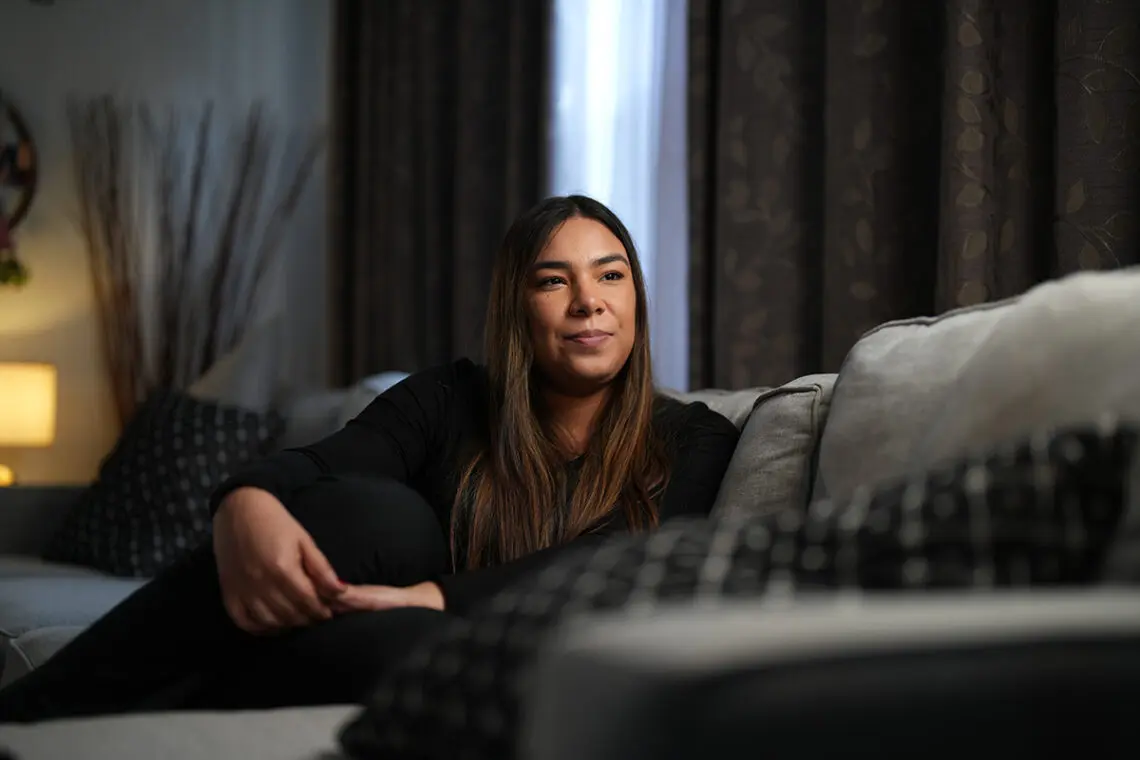Delimar Vera reclaims her narrative in ‘The Hand That Robbed the Cradle’
A journey from trauma to triumph
Delimar Vera, once the face of a sensational kidnapping case, finally shares her deeply personal story in the newly released documentary, “The Hand That Robbed the Cradle”. For years, Vera avoided the media spotlight, grappling with the scars left by severe trauma. “For a long time, I shut the media out. I was diagnosed with PTSD, and it wasn’t something I was interested in. Now, my life is very different,” she reveals with newfound strength.
The tragic beginnings
In December 1997, a devastating fire ravaged the home of a mere 10-day-old Delimar in Philadelphia. Assumed dead, she remained a mystery for six harrowing years, until a chance meeting at a birthday party reignited hope and led to an unexpected investigation and subsequent arrest. Despite the media’s portrayal of a seamless reunion with her Puerto Rican parents, Vera’s reality was far more turbulent.
The complex path to rediscovery
Contrary to the fairy tale endings, Vera faced an overwhelming identity crisis. “They said, ‘She’s back, it’s done, we have a happy ending.’ But I had a real identity crisis. I didn’t know who to be,” she candidly shares. Integrating into her biological family, Vera attempted to mimic her new family’s habits and mannerisms, leading to further internal conflict. “I tried to pick my ‘new’ family’s mannerisms to make it seem like I was never kidnapped, but I was also mourning my old family. When I was a child, I felt like I had two mums. It wasn’t until I was 11 or 12 years old that the reality finally set in.”
Unveiling hidden truths
The documentary does not feature Carolyn Correa, the woman who abducted and renamed her Aaliyah, nor Vera’s biological mother, Luz Cuevas. Vera explains, “Carolyn has told so many lies. Even if I would have the opportunity to sit down with her, I wouldn’t know if I could believe her or not. It’s just something I’ve come to peace with. I’ll never know the answer.”
The murky waters don’t clear up when it comes to her father, Pedro’s, alleged involvement. She discloses, “Of course I would like to know why. I would like to know who her accomplice was because that person should be brought to justice as well. There are so many unanswered questions.”
Reunion and resolution
Her journey also includes reconnecting with Antoinette’s family, who unknowingly cared for her as their own. “I didn’t know Antoinette’s children were my biological family members. Seeing how badly it hurt her, that was rough. Being able to reunite with them was something I never knew I needed.”
Crafting an authentic narrative
Produced by Wag Entertainment, “The Hand That Robbed the Cradle” – also titled “Back From the Dead: Who Kidnapped Me?” in the U.K. – begins streaming on U&W from November 4-6. Vera emphasizes the importance of authenticity in telling her story, “I didn’t want to move forward with some company that would exploit me. I wanted to tell my story authentically, and it was achieved here.”
Breaking cultural barriers
Delimar Vera’s experience highlights more than a personal victory; it serves as a beacon for her community. “As Latinos, we are not supposed to cry. The way my mum was raised, she didn’t have space to talk about her feelings. You leave everything in the past and move on with your day, and that’s how I’ve learned to suppress my emotions. Ultimately, it really hurt me. I didn’t know how to process them. Now, our community is opening up, and talking about my story will hopefully contribute to that.”
Spreading hope and resilience
Determined to support others facing similar adversities, Vera’s mission extends to group homes, offering solace and strength to girls and women who have experienced trauma. “I want to tell them: ‘Hey, you can really get through anything and come out on the other side. You can be successful, in a happy relationship. Hope is a big thing. When you go through something traumatic, you feel broken. You think you’ll never recover. My main message is that there’s a light at the end of the tunnel and your trauma doesn’t define who you are. You can be whoever you want to be.”
Future aspirations
Delimar Vera’s journey is far from over. She contemplates penning a book to dive even deeper into her experiences. “I feel healed, and I have a sense of purpose. It was difficult to go back to that space because I don’t live my life thinking about my kidnapping every day. It just felt like now was the right time. I am strong enough to handle this.”
Embracing vulnerability
Though she describes herself as a “goofy” individual, Vera’s emotional recollections surface as she shares her past in the documentary. “When I’m watching it, I get emotional. It takes you back to that heartache. But I’ve had so many people over the years who followed my story, and I wanted to give them answers as well. This way, I don’t have to constantly go on social media. I can say: ‘Go and watch the documentary. It’s all there.’”
Explore more heartfelt stories and updates by following us across our platforms. Let’s continue this journey together towards understanding, resilience, and hope.

 Italian
Italian







